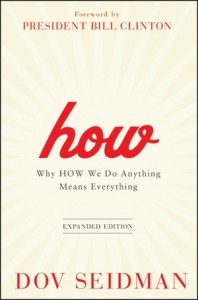Nov 3, 2011

How helps us understand that principled behavior isn't merely something a PR/Corporate Social Responsibility staff or attorneys tell us is important. Rather it is the surest path to success and relevance in business and in life.
Read the Full Article

Already a subscriber? Login